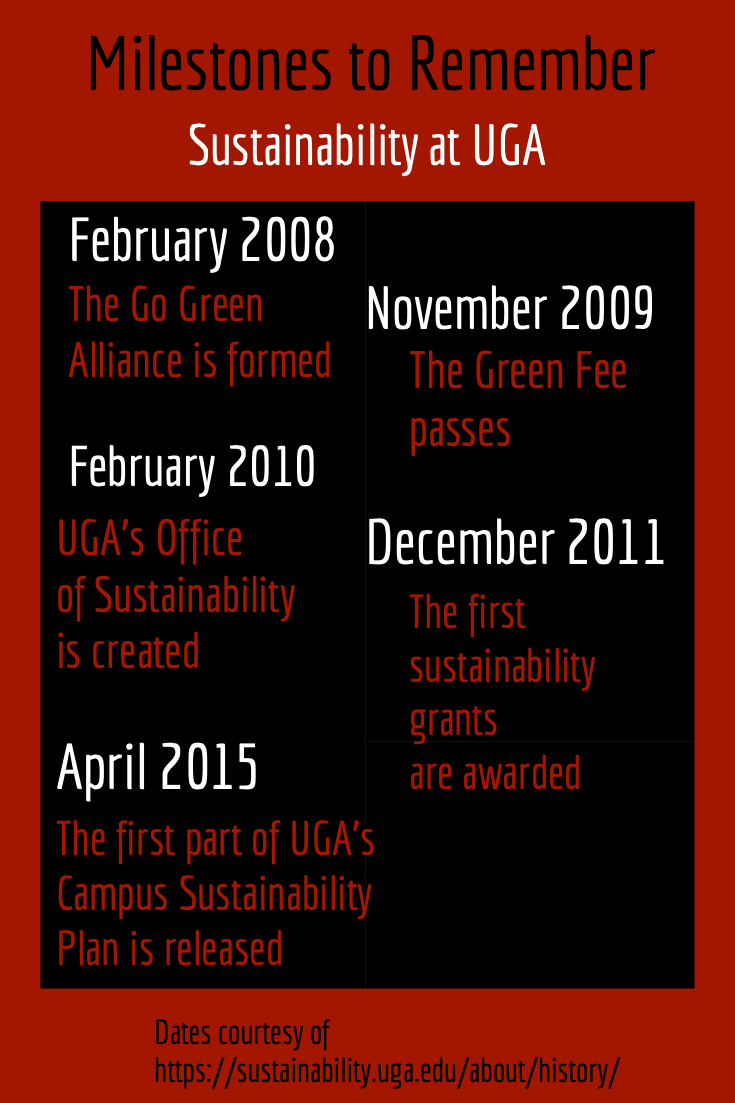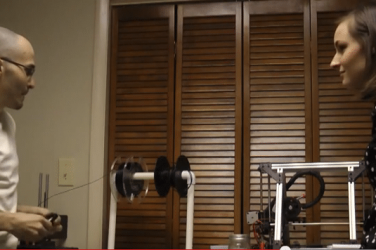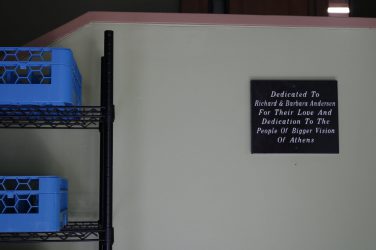This is one of several Solutions Journalism stories published through a Grady capstone course that reported on housing issues during the fall of 2018.
Before 2010, the University of Georgia’s Office of Sustainability did not exist.
Students wanted to change that.
“In 2008, there was a group of students, mostly in the Ecology Club, who got tired of how the campus looked after football games. That was really the initial driver for this group,” said Andrew Lentini, the program coordinator for the Office of Sustainability.
Why It’s Newsworthy: The Office of Sustainability grew out of a student-led movement and desire for implementation of sustainable practices on the University of Georgia campus. What began as a student organization grew into an official branch of The University of Georgia’s administration, and the Office of Sustainability continues to push UGA toward more environmentally-conscious practices.
The group started a student-led game day recycling initiative. Lentini, who was the recycling coordinator for the Facilities Management Division at the time and worked closely with the students, noted, “It [the recycling program] wasn’t something that the university did. It was just a student initiative.”
The group worked with faculty, staff and students across campus, and eventually grew to form the Go Green Alliance, a student organization dedicated to sustainability on campus.
“It originally was a recommendation from a Grady College class. The Go Green Alliance was mainly representative of environmentally-related student groups across campus,” Lentini said.
The Go Green Alliance drew inspiration from the University of California at Berkeley’s green initiative fund and followed its guidelines to promote the passage of the student green fee. This fee included the creation of The Office of Sustainability. It passed in November of 2009. In February of 2010, The Office of Sustainability was officially established.

Students at UGA still pay a $3 green fee as a part of their tuition. While students may not be thrilled about another fee tacked on to their already expensive tuition, Lentini said the fee does benefit them.
“The green fee is one of the only fees that the students decided by themselves to pay for and create, and it’s one of the only fees that actually goes back to students. It goes back in the form of funding for internships and grants that students propose and initiatives that are all based on expanding the student experience around sustainability on campus,” Lentini said.
Today, the Office of Sustainability coordinates, communicates and advances sustainability initiatives at the university. It is also in charge of ensuring a campus-wide implementation of sustainable practices in accordance with UGA’s 2020 Strategic Plan.
According to the 2020 Strategic Plan, the university wanted, among other things, to reduce the amount of landfill waste it produces by 65 percent by 2020. A recent article by the Red and Black shows that goal might not be met.
Lentini noted that reducing landfill waste by 65 percent by 2020 was a lofty goal.
“It’s a tough problem, but it’s also an individual one,” Lentini said. “If we can get people to recycle all of the things they can, throw away all of the things that shouldn’t be in recycling, then we’ll be more on our way to reaching that goal. Ultimately, that goal is driven by individual behavior.”
Emma Fordham is a fourth-year majoring in English and journalism in the Grady College of Journalism and Mass Communication at the University of Georgia.







